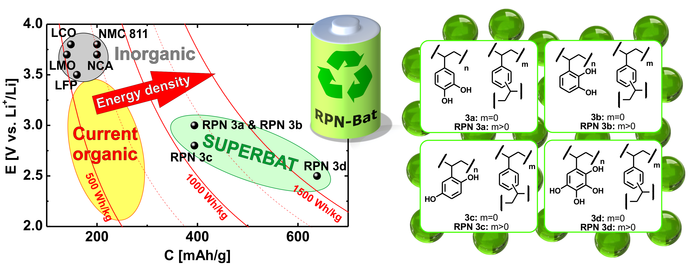National Institute of Chemistry (NIC)

The National Institute of Chemistry is a scientifically excellent, established and breakthrough research institution based in Europe. With our cutting-edge research, we are enriching the global treasury of knowledge by solving the most pressing challenges facing society including: health, sustainable energy, climate change, a circular economy and safe food. Our research goals push the boundaries of science and create new values. We successfully transfer knowledge to industry and, in the long-term, support the role of science in the development of society.
We enable our scientific excellence through collaboration with the best global research institutions, groups and individuals. We are members of international multidisciplinary research networks. We aim to provide a stimulating environment and open learning space where young researchers can develop their curiosity and realize their research creativity. By doing so, we ensure future generations lives benefit from the profession.
We provide our employees with inspiring working conditions in which they can carry out their professional mission. We are proud that our interpersonal relationships are based on an open, integrated, equitable and inclusive culture that is not limited by gender or race. We strive to become the reason for excellent Slovenian scientists returning from abroad. With our mission, we contribute to the well-being of society and are an example of excellence.
NIC Institute values:
Excellence – with cutting-edge equipment and knowledge, we discover the unknown.
Collaboration – we tackle the most difficult challenges together.
Courage – we are curious, creative and daring.
Without borders – we are globally engaged and open to collaboration.
We share knowledge – we raise public awareness, spread knowledge among young people and transfer it to the industry.
Family – we trust and support each other.
L18 Laboratory for Modern Battery Systems
We are working on advancing electrochemical energy storage by developing novel electrochemical materials and providing insight into electrochemical materials and battery cell properties. Our goal is to advance the scientific and technological understanding of electrochemical energy storage, specifically in the context of sustainable energy systems where renewable energy is required to be stored in secondary batteries and (re-)converted into electricity.
Our research is focused on secondary batteries – primarily on monovalent (Li, Na), multivalent (Mg, Al, Ca) and organic battery materials. We are working on designing batteries with improved functioning and longer lifetime. Our strategies to enhance the battery performance include developing self-healing batteries as well as finding new ways to construct a well-functioning electrode-electrolyte interface. We aim to bridge the gap between fundamental science and applied engineering by combining both academically as well as industrially relevant questions. In addition to preparing improved battery systems, we are focused on in-depth understanding of these systems. An important part of our research activity is developing and utilizing advanced diagnostic tools to gain insights into the relevant electrochemical processes and material properties.
Our main motivation was to extend our research and extend our collaborations aslo outside battery research. Our research on polycatechols started in 2017 when we started to collaborate with prof. David Mecerreyes. Together we have developed several types of polymer nanoparticles, based on polycatechols. These polycatechols were initially tested as active electrode materials in Li-organic batteries but unfortunately results were not so encouraging. Further research revealed that these types of materials are more promising in batteries based on aqueous electrolytes, where they showed good proton exchange capabilities. It is known that compounds containing catechol group (1,2-dihidroxybenzene) have exceptional surface binding properties even in the presence of water. In nature mussels for example use catechol-based adhesive to attach to the ground. Polycatechols also show good antipathogenic properties and can be used for disinfection.
Our idea was to extend our research on polycatechols from batteries to adhesives and further to disinfectants. In this InsBIOration project, there are academic partners (IPF), CNRS Institute Charles Sadron (ICS) as also industrial partners (BASF Chemetall GmbH, Plasmatreat GmbH, Hamos GmbH). Our collaboration inside InsBIOration is very good opportunity to develop new adhesives, new useful coatings for metallization of plastics and new disinfectants.
Contact details of the project partner
Dr. Klemen Pirnat
E-Mail: Klemen.pirnat@ki.si
Dr. Jan Bitenec
E-Mail: jan.bitenc@ki.si


